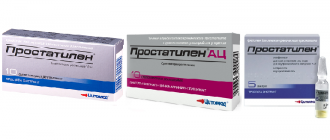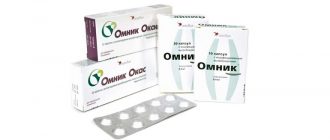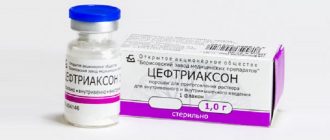Methyluracil is an immunostimulant. Helps damaged cells recover and prevents scar tissue from forming. Methyluracil suppositories for prostatitis have anti-inflammatory and analgesic properties. The drug is available only with a prescription.
Release form and composition
The drug is available in three dosage forms: tablets, ointment and rectal suppositories. The active ingredient is dioxomethyltetrahydropyrimidine. The main property of this substance is to stimulate the immune system.
The drug must be stored in a dark place:
- suppositories at a temperature not exceeding 8 degrees;
- tablets and ointment up to + 25.
The ointment is used in the treatment of burns, non-healing wounds, bedsores and other skin diseases.
Candles
Methyluracil suppositories for prostatitis are the main treatment form, due to the fact that the active substance is absorbed close to the affected tissues. They are torpedo-shaped, white, and may have a slight yellow or cream tint. One suppository contains 500 mg of active ingredient and solid fat. Fat is needed to make suppositories easier to use and give shape.
Pills
Available in white, cylindrical shape with a beveled edge. The tablets contain 500 mg of the main active substance and auxiliary components: starch, talc, povidone, calcium stearate.
Povidone has antioxidant and anti-inflammatory properties. It is also used as a prolongator, i.e. it enhances the effect of the active substance.
pharmachologic effect
Methyluracil is a broad-spectrum drug. It is used for various diseases.
Rectal suppositories are mainly prescribed for the treatment of the prostate gland. This is due to the fact that this way the medicinal substances are delivered faster to the site of inflammation.
Suppositories with methyluracil for prostatitis are prescribed for all forms and at all stages of the disease.
When using the drug rectally, the active substance begins to have a therapeutic effect within 30 - 40 minutes after administration. Absorbed into the blood and prostate cells:
- relieves inflammation;
- reduces swelling;
- improves cell metabolism;
- accelerates tissue restoration.
Methyluracil suppositories are used as an adjuvant for prostate adenoma. They are used in combination with other drugs:
- antibiotics;
- alpha blockers;
- non-steroidal anti-inflammatory drugs;
- means of traditional medicine.
Indications
In urology it is prescribed as a primary and additional remedy for:
- prostatitis (bacterial and non-infectious);
- prostate adenoma;
- inflammation of the urinary tract.
Contraindications
The drug cannot be used if you are intolerant to the components included in the composition.
It is not contraindicated for diseases of the organs responsible for the composition of the blood (lymph nodes, bone marrow, spleen):
- leukemia;
- hemoblastoses;
- lymphogranulomatosis;
- bone marrow cancer;
- oncology of the digestive system.
Side effects that occur when taking the medicine:
- allergic manifestations (nausea, vomiting, urticaria);
- headache;
- heartburn;
- stomach ache.
Instructions for use
The duration of treatment with the drug directly depends on the course of the disease. The doctor must determine which form of medication to use.
Candles
Instructions for the use of Methyluracil suppositories for prostatitis recommend a course of treatment lasting from 1 to 4 months.
For bacterial prostatitis in the acute stage, a short course of 1-2 weeks is recommended to prevent the disease from becoming chronic.
For a chronic infectious disease, the course duration is 4 weeks. Used to increase local immunity and reduce the frequency of exacerbations.
For non-infectious chronic prostatitis, it is used to normalize the functioning of the prostate and improve metabolism in tissues.
The dosage is determined by the attending physician; it is permissible to use up to 4 pieces per day.
Suppositories are administered rectally, after emptying the intestines. After administration, you must rest for 30-40 minutes to dissolve the suppository and absorb the medicine.
Pills
Methyluracil tablets for prostatitis are taken 2-4 times a day after meals. The duration and regimen of treatment is prescribed depending on the indications and course of the disease.
Analogs
If treatment with the drug does not help or allergic reactions occur, you should consult your doctor. He will prescribe replacement medications.
The drug does not have complete analogues, but you can use other drugs that have a medicinal effect on the pelvic organs, including the prostate.
Among the immunomodulators we can note:
- Viferon.
- Genferon.
- Pyorogenal.
As well as preparations with natural ingredients, such as:
- With prostate extract (Vitaprost, Uroprost, Prostatilen).
- With propolis (Prostopin, Propolis DN).



